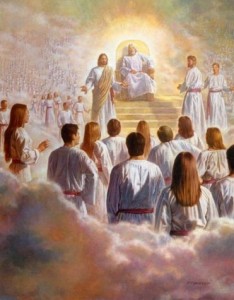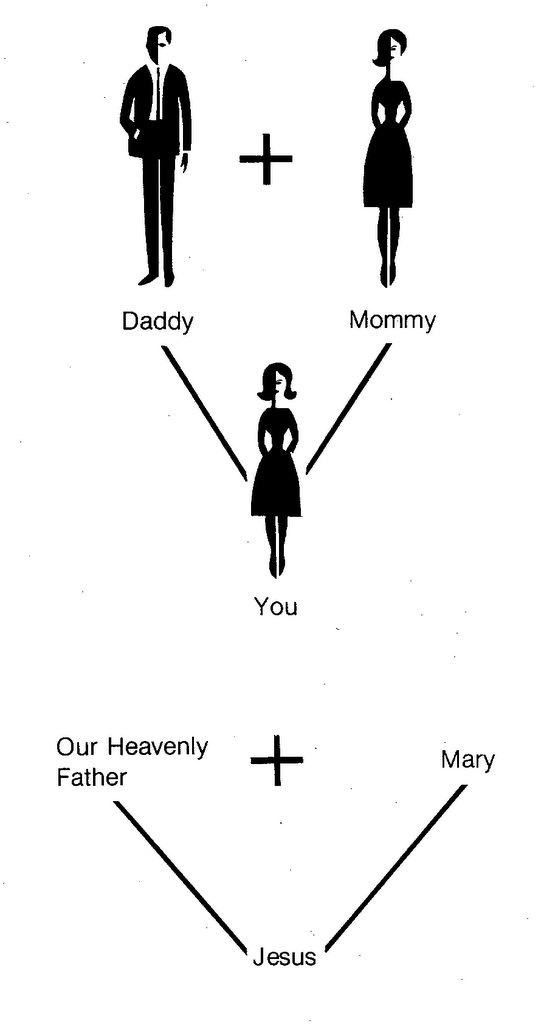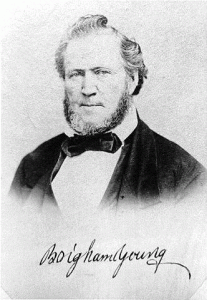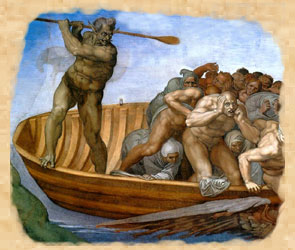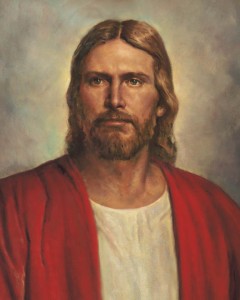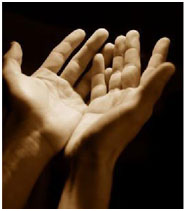Mormon.org includes a section titled, “God’s Plan of Salvation.” This section systematically presents Mormon beliefs related to eternal life. It goes like this (my summarization of each point in parentheses):
- “God’s Plan for You”
(To choose good and become more like Heavenly Father)- “Receiving Our Physical Body”
(God created you and gave you a body of flesh and bone in the likeness of His own body)- “Adam and Eve Gave Us the Gift of Choice”
(Choosing what God wants results in lasting happiness and progression)- “The Secret of Happiness”
(True happiness comes from knowing God’s plan and following it)- “When Bad Things Happen”
(Endure faithfully and be rewarded)- “God’s Plan – What Jesus Christ Did for Us”
(Jesus voluntarily suffered and paid for our sins by atoning for them Himself. We make His atonement effective in our lives by faith, repentance, baptism, receipt of the Holy Ghost and following His teachings throughout our lives)- “What Happens When I Die?”
(Body and spirit are reunited: resurrection)- “Immortality – One of God’s Greatest Gifts”
(Everyone, “even wicked people,” live forever)
The Mormon plan of salvation is presented with broad strokes, consistent with an Internet environment. The reader gets glimpses of distinctive Mormon doctrine (e.g., God has a body), but does not learn enough of the details to expose Mormonism’s incompatibility with the biblical plan of salvation. That is, not until the very end. As a subheading under the last point on Immortality, the presentation teaches,
“’Will I Go to Heaven?’
“Yes! God will judge all men fairly and reward them appropriately with a place within His kingdom.”
The idea that everyone goes to Heaven is negated in the Bible. As MRM’s web article on Heaven and Hell explains, “The Bible teaches that there is only one of two possible destinations awaiting mankind after death: eternal punishment or eternal life. To those who have been justified by faith and received the righteousness of Christ applied to their account, there awaits a glorious eternity in heaven. To the rest who willfully reject God’s gift of salvation or who attempt to appease God’s demand for perfection by some other way than trusting in the righteousness of Christ, there awaits the terrors of hell” (see also “Will God Save Everyone?”). Though they may not know the specifics of biblical soteriology, most people understand that the Bible says some will go to Heaven and some will go to Hell.
When the Mormon Church tells everyone that they will go to Heaven, it implies that there is no Hell to fear. Thus the Church plays the role that the Book of Mormon ascribes to the devil (see 2 Nephi 28:22).
Furthermore, in addition to being dangerous to the souls of men and women, the Church’s blanket promise is misleading at best. On the Church’s own websites it consistently defines “Heaven” as having two meanings: The expanse around the earth; and “the place where God lives and the future home of the Saints” (or “the faithful”; see here, here and here).
“Heaven” in the context of the afterlife, has definite boundaries imposed by the Mormon definition. It is “the place where God lives” and the place where “the Saints” or “the faithful” will live in the future. The definition does not lend itself to the inclusion of the unfaithful or the Mormon concept of the lower “kingdoms of glory” where God the Father does not live — or even visit.
Pastor Kevin DeYoung (in another context) wrote about the dangers of comforting people with a denial of the biblical teachings on the reality of Hell and God’s wrath:
“Instead of summoning sinners to the cross that they might flee the wrath to come and know the satisfaction of so great a salvation, [it] assures people that everyone’s eternity ends up as heaven eventually. …What if Jesus says on the day of judgment, “Depart from me, I never knew you” (Matt. 7:23)? What if at the end of the age the wicked and unbelieving cry out, ‘Fall on us and hide us from the face of him who sits on the throne, and from the wrath of the Lamb’ (Rev. 6:16)? What if outside the walls of the New Jerusalem ‘are the dogs and sorcerers and the sexually immoral and murderers and idolaters, and everyone who loves and practices falsehood’ (Rev. 22:15)? What if there really is only one name ‘under heaven given among men by which we must be saved’ (Acts 4:12)? And what if the wrath of God really remains on those who do not believe in the Son (John 3:18, 36)?”
While the Mormon Plan of Salvation might soothe itching ears (1 Timothy 4:3-4), it will not help anyone escape the wrath to come (1 Thessalonians 1:10). Everyone will not go to Heaven. But Jesus is calling you to be reconciled to God through Him – to “have peace with God through our Lord Jesus Christ” and to be “saved by him from the wrath of God” (Romans 5). Will you respond to His call?

